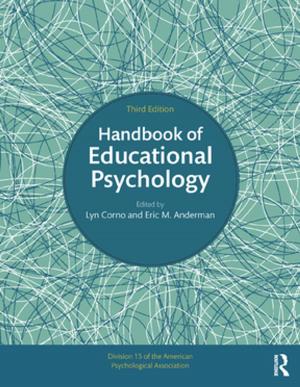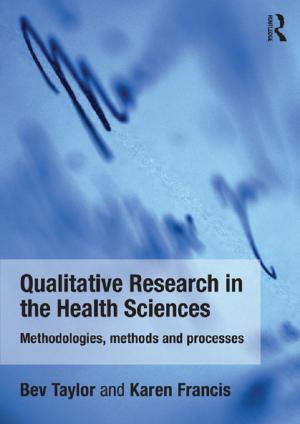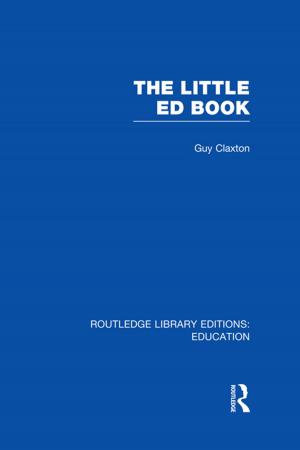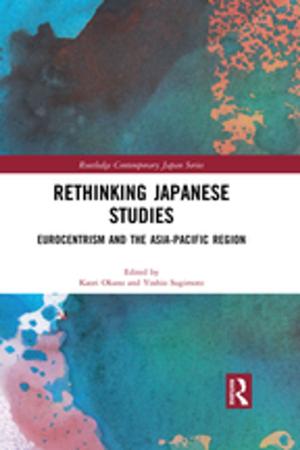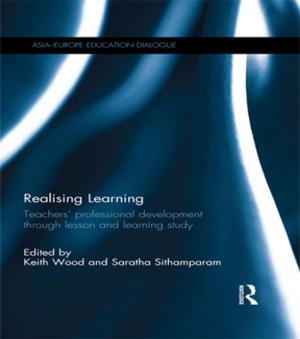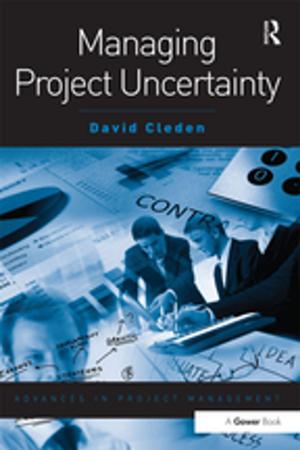Traumatic Stress and Its Aftermath
Cultural, Community, and Professional Contexts
Nonfiction, Health & Well Being, Medical, Patient Care, Health Care Delivery, Psychology, Occupational & Industrial Psychology, Allied Health Services| Author: | Sandra Lee | ISBN: | 9781135424978 |
| Publisher: | Taylor and Francis | Publication: | September 13, 2013 |
| Imprint: | Routledge | Language: | English |
| Author: | Sandra Lee |
| ISBN: | 9781135424978 |
| Publisher: | Taylor and Francis |
| Publication: | September 13, 2013 |
| Imprint: | Routledge |
| Language: | English |
Explore the aftermath of traumatic stress as it affects various populations, including therapists themselves!
This book will educate you about the aftermath of traumatic stress as it impacts people in a variety of settings. It explores the factors that lead to increased or reduced vulnerability to the effects of traumatic stress, emphasizing the impact of cumulative/multiple trauma rather than the effects of a single traumatic incident, to help you design and implement effective prevention and intervention programs.
The specific populations and groups addressed in this important book include:
- adolescent girls involved in armed conflict in Colombia’s guerilla war
- urban African-American youth-a theoretical model for risk and resiliency
- people with strong spiritual/religious beliefs-how spirituality can affect a person’s reaction to traumatic stress
- women in recovery in a community aftercare shelter
- female trauma therapists-factors affecting vicarious traumatization of helping professionals
- college students with histories of abuse
Providing a framework for understanding traumatic stress-related issues based on a variety of methodologies and measures, Traumatic Stress and Its Aftermath addresses important questions, such as:
- What is the relationship between the experiences of trauma or other stressful life events, and subsequent traumatic stress?
- What are the protective factors that can buffer or ameliorate the development of traumatic stress in the face of adverse life experiences, trauma, or other stressful events?
- How do these questions evolve in different cultural or community contexts, and with different populations?
- What are the implications for interventions for community institutions and mental health workers?
- What roles do self-esteem and spirituality play in a person’s reaction to traumatic stress?
- How do reactions to traumatic stress differ between women who have been sexually abused as children and women who have not?
From editor Sandra S. Lee: Contemporary developments in the study of traumatic stress are shifting. This book reflects an emphasis on the study of traumatic stress in normal community, cultural, or college student populations and groups, while other literature has focused on individuals specifically diagnosed with PTSD. In addition, Traumatic Stress and Its Aftermath: Cultural, Community, and Professional Contexts emphasizes the search for risk and protective factors and factors that can buffer the relationship between trauma exposure and subsequent distress.
Explore the aftermath of traumatic stress as it affects various populations, including therapists themselves!
This book will educate you about the aftermath of traumatic stress as it impacts people in a variety of settings. It explores the factors that lead to increased or reduced vulnerability to the effects of traumatic stress, emphasizing the impact of cumulative/multiple trauma rather than the effects of a single traumatic incident, to help you design and implement effective prevention and intervention programs.
The specific populations and groups addressed in this important book include:
- adolescent girls involved in armed conflict in Colombia’s guerilla war
- urban African-American youth-a theoretical model for risk and resiliency
- people with strong spiritual/religious beliefs-how spirituality can affect a person’s reaction to traumatic stress
- women in recovery in a community aftercare shelter
- female trauma therapists-factors affecting vicarious traumatization of helping professionals
- college students with histories of abuse
Providing a framework for understanding traumatic stress-related issues based on a variety of methodologies and measures, Traumatic Stress and Its Aftermath addresses important questions, such as:
- What is the relationship between the experiences of trauma or other stressful life events, and subsequent traumatic stress?
- What are the protective factors that can buffer or ameliorate the development of traumatic stress in the face of adverse life experiences, trauma, or other stressful events?
- How do these questions evolve in different cultural or community contexts, and with different populations?
- What are the implications for interventions for community institutions and mental health workers?
- What roles do self-esteem and spirituality play in a person’s reaction to traumatic stress?
- How do reactions to traumatic stress differ between women who have been sexually abused as children and women who have not?
From editor Sandra S. Lee: Contemporary developments in the study of traumatic stress are shifting. This book reflects an emphasis on the study of traumatic stress in normal community, cultural, or college student populations and groups, while other literature has focused on individuals specifically diagnosed with PTSD. In addition, Traumatic Stress and Its Aftermath: Cultural, Community, and Professional Contexts emphasizes the search for risk and protective factors and factors that can buffer the relationship between trauma exposure and subsequent distress.


